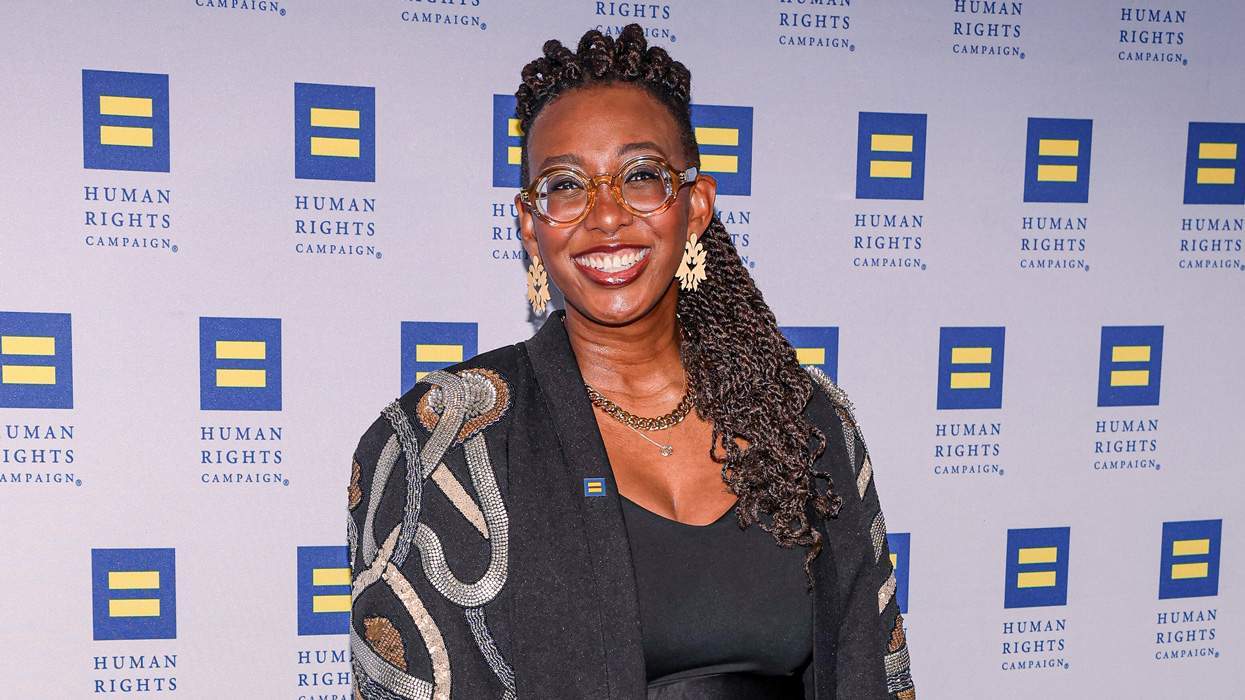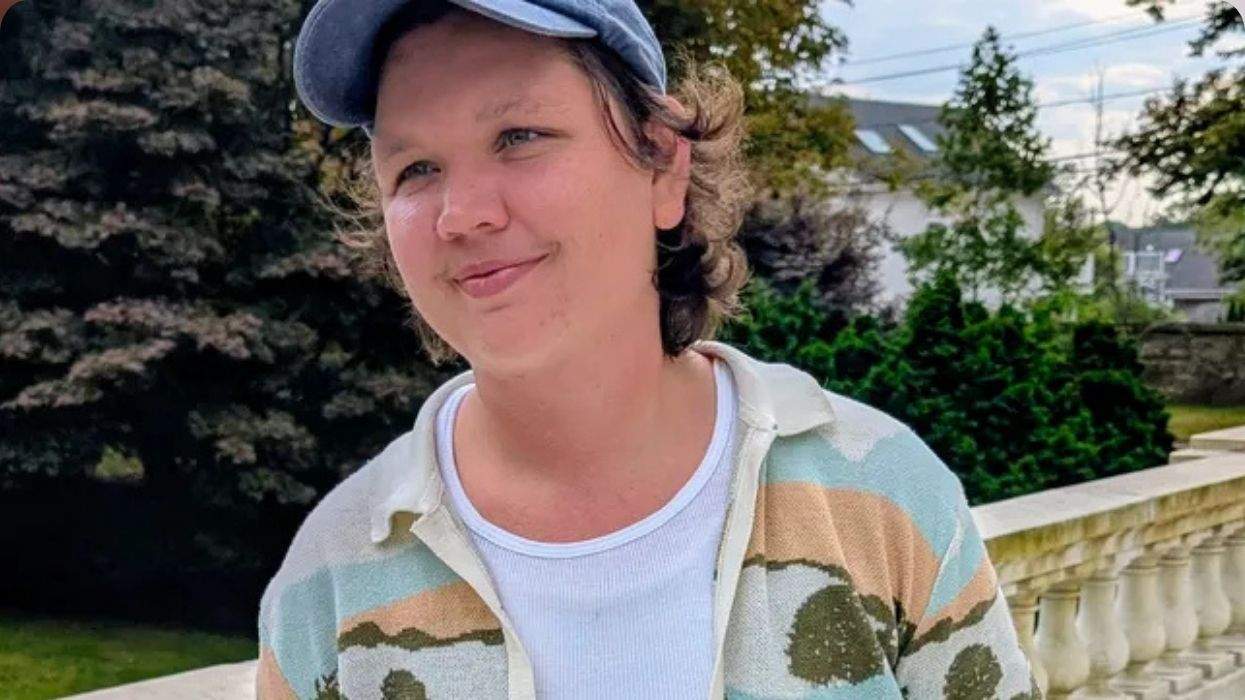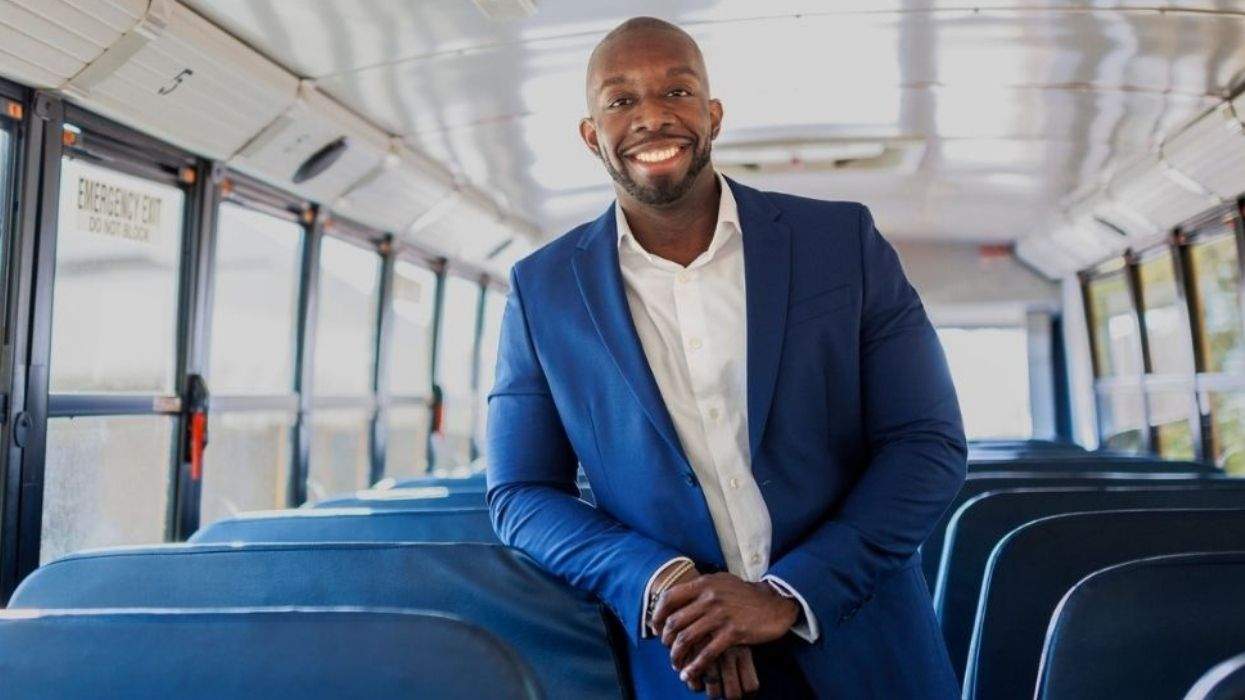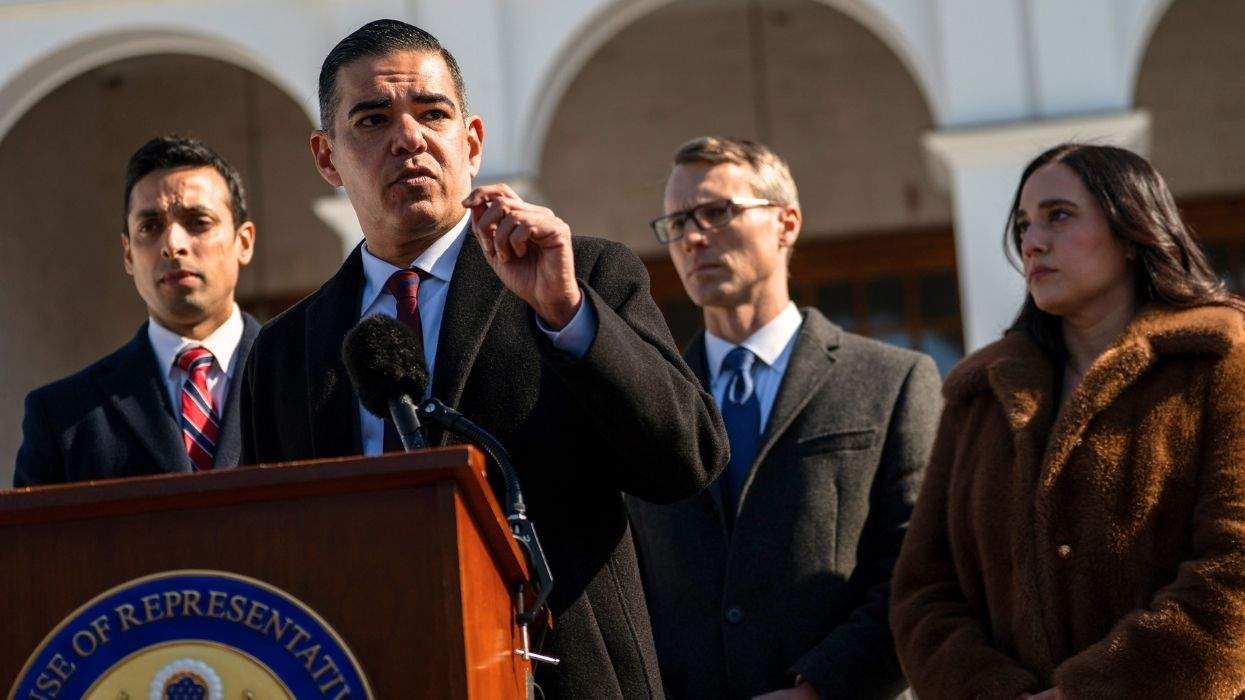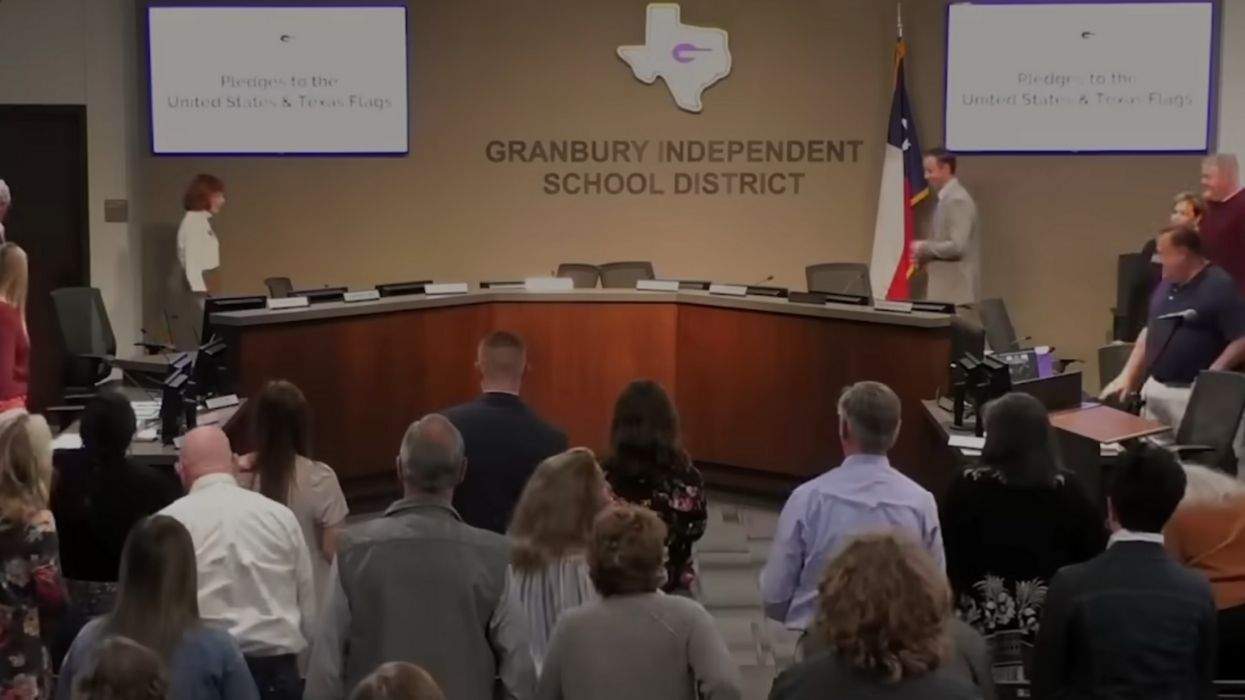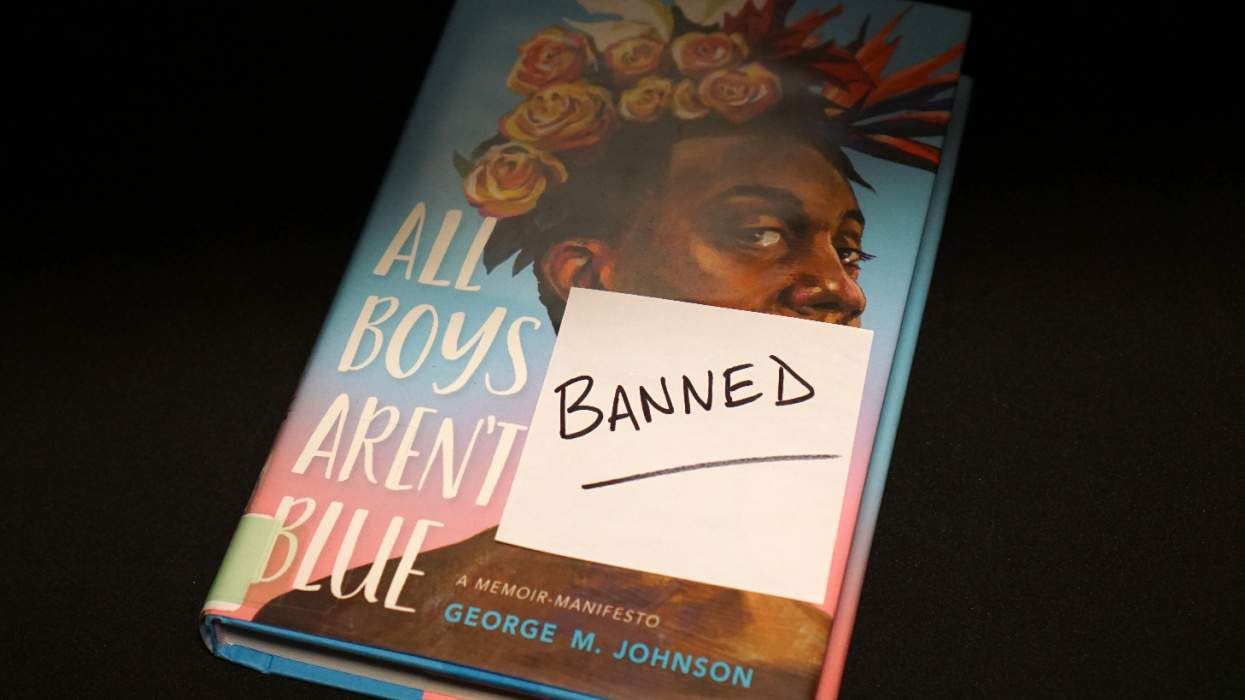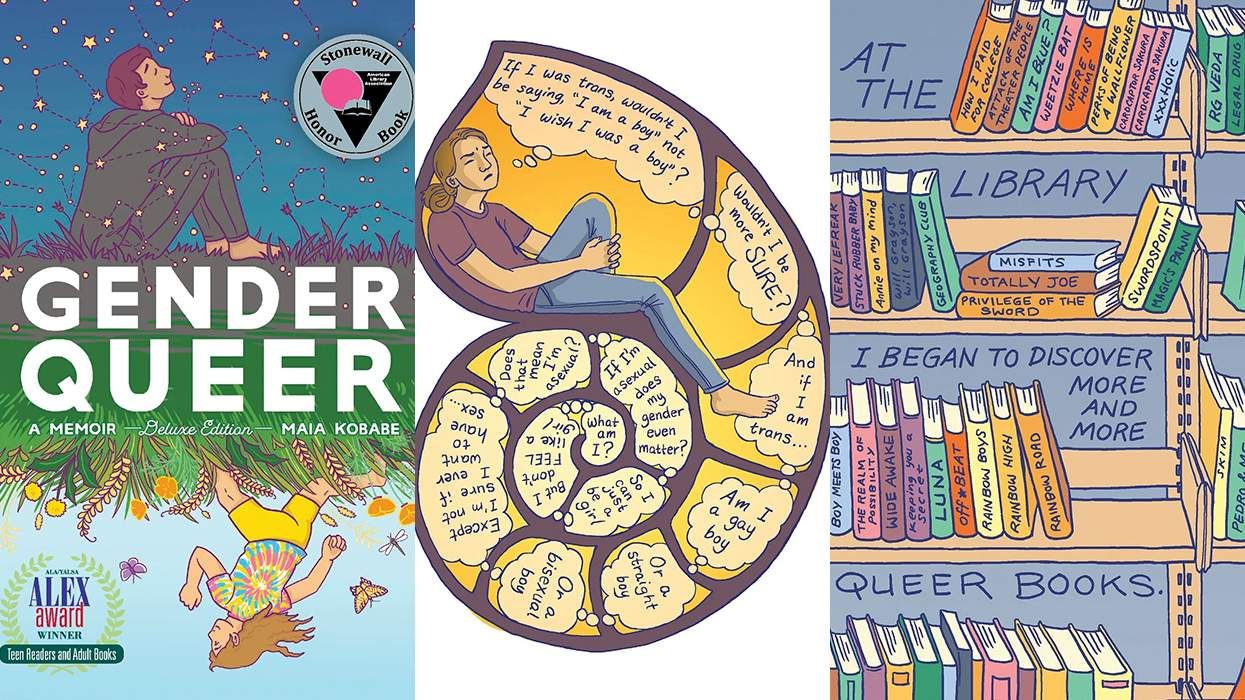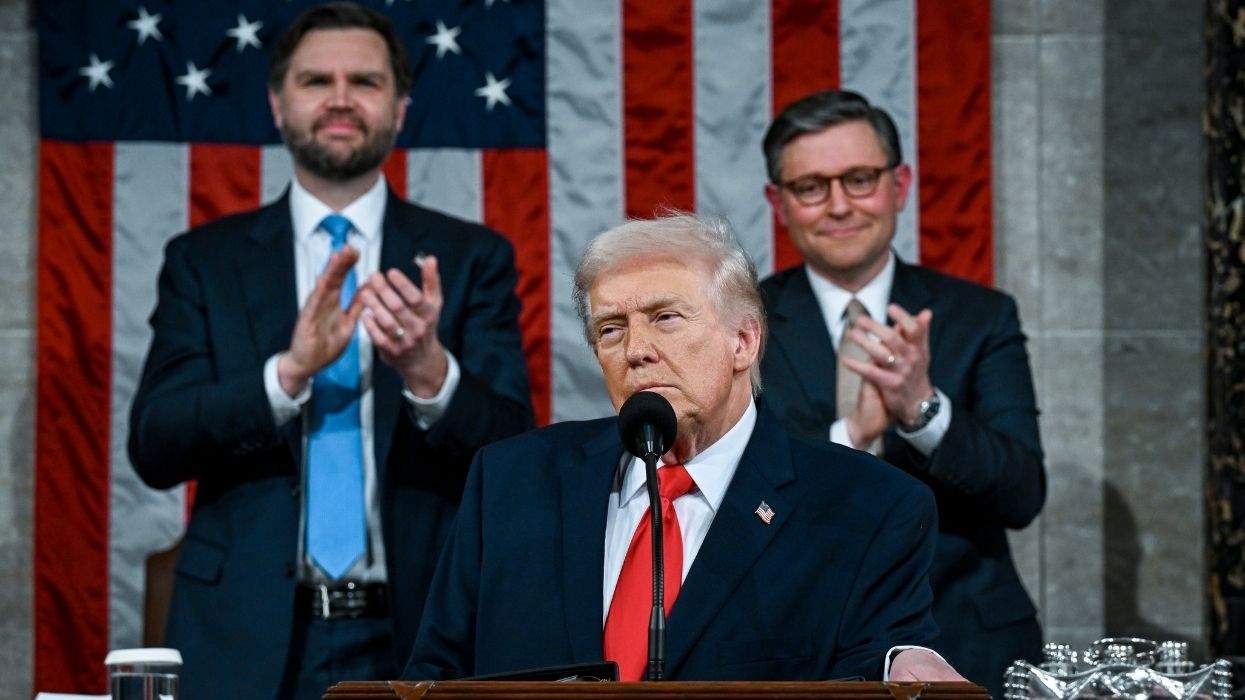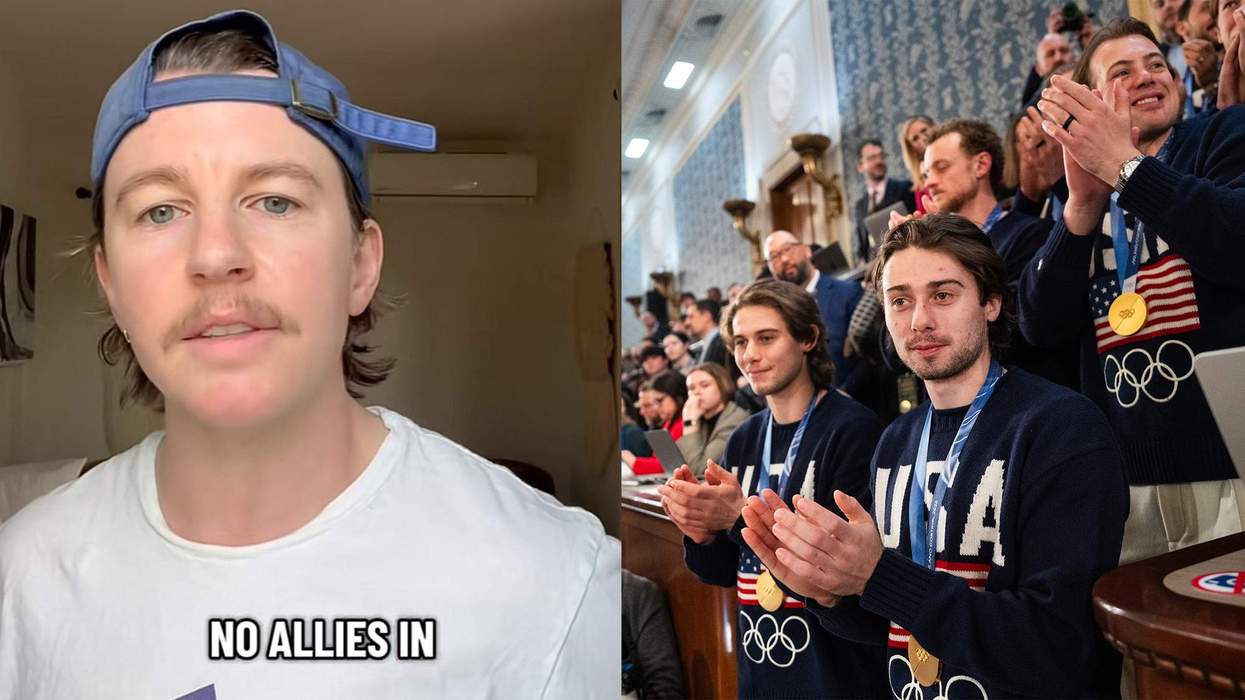New York Times best-selling author Patricia Cornwell is used to making headlines -- for good (earlier this year, she inked a deal with 20th Century Fox to develop a movie from her Kay Scarpetta series with Angelina Jolie in the lead), for bad (earlier this month, she sued a New York investment house for allegedly losing $40 million of hers and wife Staci Gruber's money) and, in the end, for both (she was outed as part of an FBI investigation in 1996, but says, in the end, it made it easier to talk about her personal life).
With her latest novel, The Scarpetta Factor, she takes that idea of "making headlines" and throws it into the path of her heroine. Scarpetta, a medical examiner-forensics expert, is now lending her voice to true crime stories on CNN, an attempt to make sense of today's sensationalized headlines. Cornwell says her decision to put Scarpetta on TV has a lot to do with the TV-viewing public's lack of understanding regarding forensics.
She also has made it a point to use interviews as an opportunity to further the conversation about gay rights. Her interview with Advocate.com happened the day after the U.S. Senate finally passed inclusive hate-crimes legislation, something Cornwell, a former police reporter and computer analyst, says sends an essential message to society that these types of crimes are not acceptable.
Frank, opinionated, and ready to talk, Patricia Cornwell has found her voice - and she intends to use it whenever possible.
Advocate.com: Kay Scarpetta is now an analyst for CNN - that's kind of an interesting direction for her. What made you choose to go that route with the character?
Patricia Cornwell: When you have a series out there as long as this one has been around, which is now over 20 years, really, it's very important that you continue to reinvent the character and the settings and scenarios because the world changes so dramatically. If you imagine a Dr. Kay Scarpetta in real life, there is no way on earth that she would not be hounded by people who want her to be on their shows. She would be, you would think, the voice of reason in all things forensic. She faces the conundrum "Do I do it and make things worse, or is there some way I can do it and make things better?" That's a real double-edged sword. Her motivation for agreeing to go on television and to talk about basic forensic procedures is that so much is misunderstood - not through anybody's fault. It's just, unfortunately, people believe what they see on TV, on the dramas, and think that's the way crimes really works, and there's a lot of science fiction - of fantasy - to that.
So do you think that people who watch crime stories unfold on the Web or on TV have a skewed idea of what really goes on?
They do have a skewed idea -there's no question they do, and it is a major problem for criminal investigators and also for judges and for lawyers. People watch television nonstop, and they're bombarded with everything about crime you can think of, and it's fine for them to be entertained, but they can't discern or edit what they see and realize that this is not the way it translates to real life. If, for example, they are the victim of crimes - let's say you're robbed or burglarized - the way the police are going to deal with that is not what you see on television. And then you're going to say, "Well, wait a minute. I just watched a show last night, and you didn't bring that fancy, magic box with you that would tell you instantly who the guy is who did it, because you can get DNA out of the air." Well, I'm sorry, we don't have those yet. The bigger problem is, these people sit on juries. There are a lot of sad cases of justice that go haywire because the jury decides... "Well, I know I saw on the video surveillance camera that this guy pulled the trigger in a robbery and shot the person, but you didn't get his DNA, so I'm not going to call him guilty." That's actually happened.
After a decade of trying, hate-crimes legislation finally passed this week and is headed to the president's desk to be signed.
Wow, yes, that's really important.
I'm wondering if you can put into context what hate-crimes legislation really means in the long run.
One
could argue that any kind of violent crime is a hate crime, and one
could actually say, for example, that when someone is a serial rapist,
that violence against women would indicate he hates women. But to be
specific and to protect society, I think that when somebody commits a
crime because they have a tremendous prejudice toward a certain type of
person and they're going to randomly do something destructive or
debilitating or even cause death to that person just because they
represent a group that they hate, I do think we have to take very
strong measures against those types of perpetrators. For one thing, I
think on a sociological level, these not only lead to bigger crimes -
if you're targeting one person who represents a group, what you're
actually saying is, "I want to annihilate the entire group," which is
the same thing the Nazis did -- you're leading to greater destruction
of our civilization. I think by punishing people who do target certain
groups of people, whether it's by race, by gender, or by sexual
orientation, you're also sending the message to society that this is
not permitted. You do not get to hate and attack any individual because
they represent a group that has an affiliation, for one reason or
another, that doesn't suit you. So, for the survival of our society, we
need to take certain measures to say this is wrong and we will not
stand for it.
I know you've done a couple of bios and a children's book. At the end of the day, what keeps you coming back to crime?
It
seems to be what I know best by now. I am so steeped in it. People have
asked me this a lot, and I always grope a bit with, "Why am I so struck
with this?" I know this will sound strange, but I think it's because,
when I was first exposed to it as a police reporter I had been
sheltered from it. I grew up in a little town where, year after year,
it had a zero crime rate. Nobody locked their doors. Certainly I was
subjected to things that weren't very pleasant when I was young, and I
was no stranger to people being scary, going back to being 5 years
old in Miami and having a bad run-in with a local security person. I
knew bad things could happen to people. But I did lead a rather
sheltered life, and when I started seeing the types of crimes that were
being committed in Charlotte, N.C., where I was a journalist,
I was shocked. I think I was so stunned by it all, I had to find out
more. Why do people do this, and what does it feel like to have it
happen to you? How do you cope with it, who are the people that work
these cases, and what makes them tick? It's my nature to explore things.
Looking back at your earlier books, I was shocked to see how
early the character of Lucy (Kay Scarpetta's niece) came out. I think
you even did it before you came out, publicly at least.
It was
before I was kind of forced out. I'd never lied about it to anybody;
it's just that nobody had asked. And yes, Lucy - I think that was 1995 when The Body Farm
came out and we first find out about Lucy... she was a teenager in that book. It's
the funniest thing, because I didn't plan on it. I hadn't seen Lucy in a
while in my books - the last time I'd seen her she was a kid - and when
she returned in The Body Farm, a period of time had elapsed and she'd
gotten older. The minute she appeared before my eyes in my imagination,
I thought, My God, she's gay. I didn't know. And then I thought, OK,
stop the press, this is an issue here. What am I going to do with this?
I know she's gay, I'm looking at her, I can tell. That sounds weird to
say, but I knew it. I said, OK, you've always been honest about your
characters. If she's gay, she's gay. I do remember even having a
conversation with someone at my publishing house, when I said, "Listen,
I've got to tell you something. I just found out Lucy's gay." "Well,
what do you mean you just found out?" In that time, 1995, that was not
really a cool thing to do. There wasn't really a series character on a
magnitude of what this series has been where you had someone who was a
gay character. There was some consternation about it, but I said, "Too
bad." Of course, it also happens to be who I was. I knew it even though
we weren't talking about it in the media. So I'm sure that had
something to do with it.
Did the questions really start for you after that?
No,
what literally happened for me - it was all outed in a very negative
way because there was that case with the FBI [in 1996, Cornwell's brief
relationship with a female instructor at Quantico was revealed during
an attempted murder investigation] and that became very public because
of the crimes that man committed, who is now in prison. That's not the
way I'd have wanted it to come out. If somebody had asked me, it would
have been fine. But it just wasn't a topic of conversation when I did
interviews in my earlier years. The fortunate part about it is, even if
people do something for the wrong reason, sometimes it can be the right
thing to do. It made it easy for me - "OK, it's out there, so if you
want to talk about it, go right ahead. It is what it is." One thing I
don't believe in is telling a lie. It's incredibly personally damaging if
you aren't honest with yourself. I think all of us in the community
know the sickness of the soul that occurs for people who won't tell the
truth.
You credited Billie Jean King with teaching you the importance of speaking out for equal rights. I'm wondering, in the past couple of
years, with all of the setbacks for the gay community, have you found
it easier to speak out for what you believe in, or is it always a bit
tough to go there?
No, you know, I won't let it be tough because
it's the right thing to do and it's even more the right thing to do now
than it has ever been because now, with this last election, the visions
between people, unfortunately, become even more galvanized. You'd think
it would be less divisive because of the enlightenment of having Obama
for president, but it's worse because people with prejudices are now
taking a more militant stand because they feel more threatened. People
tend to be angry and hateful toward things they fear, and they tend to
fear things because they just don't know about them. I think it's
easier for me to take a stand because it's so right to do. How could
anybody who knows me or knows some of my friends say, "You're a
horrible human being or you're evil." It's silly.
I know we
really can't go into detail, but I know this has been a year of ups and
downs for you. How do you keep your head up given everything that's
going on?
Well, again, it's about telling the truth. A lot of
times life throws you things you don't want and that are very
unfortunate and you're forced into positions you really don't want to
be in, but you've got to live with the position you find yourself in. I
know what you're talking about, and it's sad when you're put in a
position that causes you to take actions that really aren't your first
choice. I'd much rather live my life and write books and be busy than
have to fight with people.
And on that note, I have to ask
this one for the ladies: The rumors are out there that a Scarpetta
movie is being developed and Angelina Jolie is attached to star.
If
rumors can be true, that's a true rumor. I have a deal with 20th
Century Fox and it includes the prospect of Angelina Jolie playing
Scarpetta. She's a wonderful actress. She would be good playing any
role she decides to play. The film is still in the very early stages of
development, so there's a lot that has to happen before anybody sees
Scarpetta on the big screen. We will see where this all goes, but that
is an accurate rumor.

